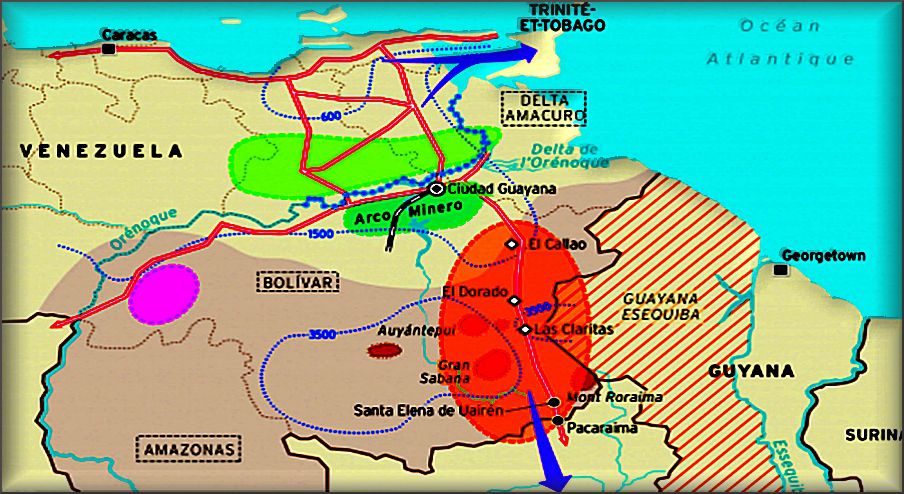BORDER CONFLICT BETWEEN VENEZUELA AND GUYANA AROUND THE ESSEQUIBO WITH VAST OIL RESOURCES |
|
Tensions continue to rise between the two neighboring countries of Venezuela and Guyana, a situation that worries Brazil, and more generally the rest of South America. Brazilian President Luiz Inacio Lula da Silva also urged his Venezuelan counterpart Nicolas Maduro not to take “unilateral measures” that would aggravate the border conflict between Venezuela and neighboring Guyana, during a telephone call on Saturday. “Lula stressed the importance of avoiding unilateral measures that could worsen the situation” in the disputed oil-rich Essequibo region, the Brazilian presidency said in a statement. The President of Brazil, which borders the two countries, repeated the "growing concern" of other South American countries which had in a joint statement Thursday evening invited "the two parties to dialogue and the search for a peaceful solution ". “If there is one thing we do not want, it is a war in South America,” Lula clearly said. Referendum on annexation of Essequibo to vast oil fields Some 125,000 people, or a fifth of Guyana's population, live in Essequibo, which covers two-thirds of the country's land area. This territory, which extends over two thirds of Guyana, is the subject of a very old territorial dispute with Venezuela. The dispute was reignited by the strong man of Caracas, Nicolas Maduro, on December 3, with the organization of a referendum on its annexation. The Venezuelan president relied on hand-made results to advance plans to transform Essequibo into a Venezuelan province and to order state oil group PDVSA to grant oil and gas exploitation licenses in a rich region in fossil fuels and minerals of all kinds. The discovery of vast oil deposits has therefore revived the old conflict over the Essequibo, a territory of 160,000 km² administered by Guyana, but which Venezuela claims by maintaining that the real border is that dating from the Spanish empire in 1777 This territorial dispute is a legacy of colonization, in this case British, but there are legal ways to resolve it, starting with arbitration by the International Court of Justice. This body was seized in 2018 and declared itself competent despite challenges from Caracas. The dispute between Venezuela and Guyana is being brought before the International Court of Justice (ICJ), the highest court of the UN, which Venezuela refuses to recognize. Guyana maintains that the borders were established in 1899, when the United Kingdom was the territory's colonial power. On the eve of a presidential election scheduled for 2024 Russia, an ally of Venezuelan President Nicolas Maduro, who supported Vladimir Putin from the first hours of the Russian invasion in Ukraine, calls for “peaceful solutions acceptable to all”. Washington, an ally of Georgetown, affirms its “unwavering support for the sovereignty of Guyana”. In response, Washington abruptly announced the holding of joint air military maneuvers with Guyana, and Brasilia sent military reinforcements to the border between the three countries. The Venezuelan Defense Minister describes the air military exercises announced by the United States in Guyana as “provocation”. |
|
| Garett Skyport for DayNewsWorld | |
 |
|




